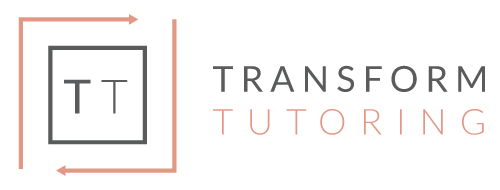After many years of coaching students for the ACT/SAT, I started to explore coaching students for other entrance exams and professional tests. What I found is that the underlying foundations of test preparation are consistent across the various exams. And often times the challenges test takers face are common and have less to do with the material itself, but rather how they attack the preparation process. Analyzing the test structures, patterns, and study efficiency can be the missing piece that the student or professional can’t peel back on their own. But like anything else, you have to start with a strong foundation to win the game. What principles are critical?
Concept Knowledge - Are you rusty with content that you have already learned and understand? Dissecting the consistent material on your test and organizing it in digestible pieces can remove the daunting task of mastering a number of concepts. It is also important to recognize and fill in the remaining knowledge gaps. Coaches can help students separate the components of their test content that is essential versus inessential.
Strategies and Tactics - No shortcuts here. Let’s unlock where to utilize the time wisely and invest it there. Develop a plan for how you will navigate the whole test start to finish and discuss the different up and down moments and how you will manage them. Learn the “traps”, which are really just skill and detail testing, so that you can avoid them and win questions. Coaches have a knack for exposing the ins and outs of the test that will allow you to discover and take advantage of its consistencies.
Time Management - This is often where the pressures mount. The idea is to be quick and decisive, but not in a hurry. Accuracy is king over speed, but without a plan you will constantly question your pace. It should be practiced and measured. Getting comfortable with an internal clock. Ask yourself: Do I make careless, hurried mistakes? Is my time well invested? A coach can help you with this evaluation and provide reassurance you’re moving responsibly.
Emotional Command - Anxiety, albeit normal, can be overwhelming and can freeze us up. On the other hand, too much confidence will cause us to be careless and rush - missing the attention to detail required. Regular practice and situation exposure can relieve these stresses and expose the setbacks overconfidence creates. Unlearning old habits and bringing awareness to detrimental emotional responses is important to having a firm grasp on emotional command. A coach can provide the words necessary to build trust that the process is repeatable.
Practice (I’m talking about practice) - This is about utilizing knowledge under pressure. Organized, structured, consistent, and efficient preparation. It’s about quality over quantity, but this can’t happen without breaking down the test patterns. It’s proven that practice testing is the number one way to succeed on any of these exams. A coach can help identify the behavior and error types in the practice process and make adjustments to formulate a plan that works best for practice going forward.

